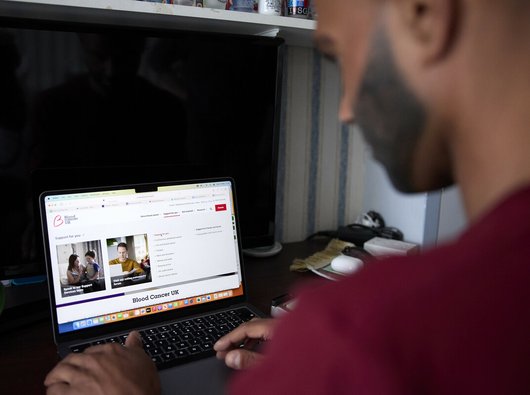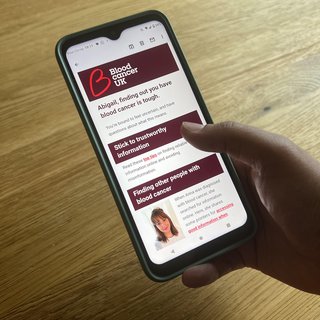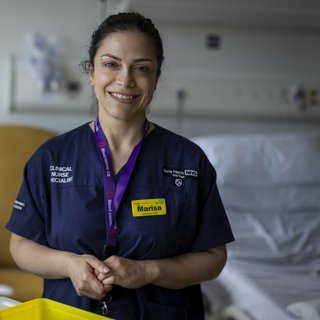How we make our blood cancer information
Good health information can make a difference.

After the shock of a blood cancer diagnosis, many people find information helps them feel a bit more in control. They can take things in at a pace that suits them. And it helps them feel more confident about asking questions.
At Blood Cancer UK, we aim to give you good information – information that’s helpful, accurate and true to life. We are a member of the PIF TICK scheme, the UK’s only independently-assessed quality mark for health information.
We also write our information with the help of people who know what it’s like to live with blood cancer.
Browse our free printed information.
Working with people affected by blood cancer
When we plan a new piece of information, we start by talking to people with lived experience. We ask about their story, and what they think is most important to include in the information.
Because we value input from people affected by blood cancer, we offer payment to help us with health information projects. Contact [email protected] to find out about our payment policy.
Including everyone
Blood cancer can happen to anyone. So we try to involve a wide range of people when we create our information. We know we need to do better at this, and we are working with other organisations to reach more people from different backgrounds.
Get involved in health information
If you would like to help us make information for people affected by blood cancer, please join our involvement network. This is the best way to find out about health information and other Blood Cancer UK projects you may want to get involved with.
We want our information to help everybody affected by blood cancer. If you don’t see yourself represented in our health information, please get in touch. You can email [email protected] or join our involvement network.
Working with healthcare professionals
To make sure our information is medically correct, we work with clinical reviewers, including consultants, specialist nurses, dietitians and other healthcare professionals who are experts in their field.
We do not pay experts for their work. They kindly give their time to check that our information is up to date, accurate and in line with NHS practice.
If you are a healthcare professional, please join our healthcare professionals network to find out about opportunities to help with our blood cancer information.
AI in health information
Lots of digital technology now includes some form of artificial intelligence (AI). This can be helpful in our work. For example, we use an AI tool to check the reading age of our information and make sure we are using clear, plain language. We also use AI to transcribe conversations and meetings more efficiently.
Some AI software can create text and images from a set of instructions. It does this very quickly, but the results may not be accurate, balanced or up to date.
In some circumstances, we may use AI to help us write our information, for instance, to make it easier to find online. But we never use AI on its own. Our information is always checked by humans with appropriate training and knowledge.
Translated information
We have translated some essential information into community languages.
To make sure translations are accurate, we either work with a clinical expert who speaks the language fluently, or a translation agency which has its own quality checks.
Our review cycle
Our information is based on reliable, up-to-date scientific evidence and checked by medical experts. We aim to review our online and printed resources every 3 years. We may update online resources in between reviews if there is an important change in NHS care.
Contact us
Please tell us what you think of our information. Email [email protected] with your comments.
You can also email us for a list of evidence sources for a particular topic.




